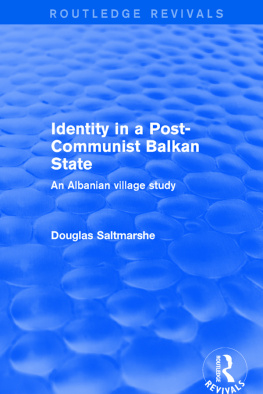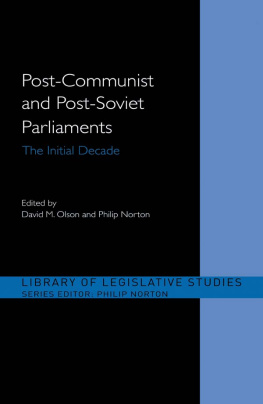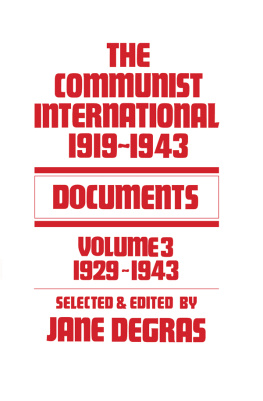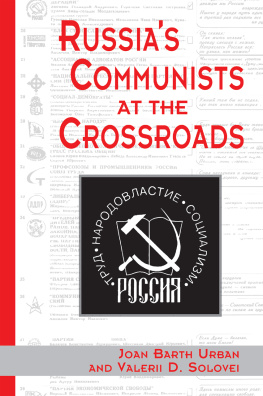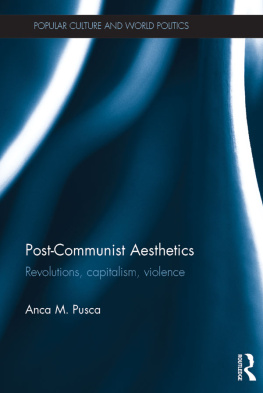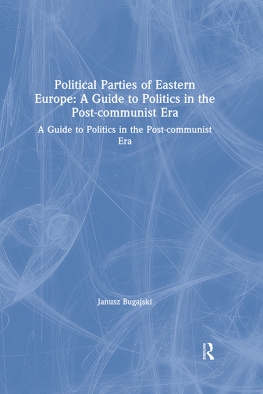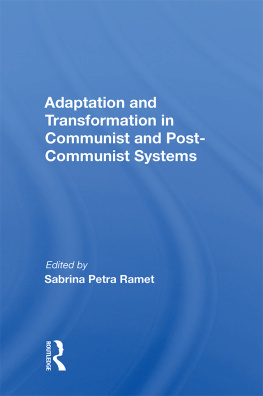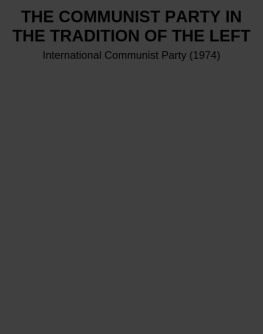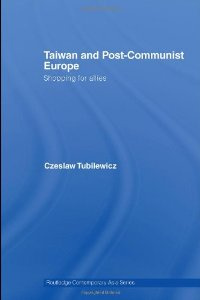
First published 1998 by Ashgate Publishing
Reissued 2018 by Routledge
2 Park Square, Milton Park, Abingdon, Oxon, OX14 4RN
711 Third Avenue, New York, NY 10017, USA
Routledge is an imprint of the Taylor & Francis Group, an informa business
Copyright Reno Lukic 1998
All rights reserved. No part of this book may be reprinted or reproduced or utilised in any form or by any electronic, mechanical, or other means, now known or hereafter invented, including photocopying and recording, or in any information storage or retrieval system, without permission in writing from the publishers.
Notice:
Product or corporate names may be trademarks or registered trademarks, and are used only for identification and explanation without intent to infringe.
Publishers Note
The publisher has gone to great lengths to ensure the quality of this reprint but points out that some imperfections in the original copies may be apparent.
Disclaimer
The publisher has made every effort to trace copyright holders and welcomes correspondence from those they have been unable to contact.
A Library of Congress record exists under LC control number: 98019212
ISBN 13: 978-1-138-32730-6 (hbk)
ISBN 13: 978-0-429-44932-1 (ebk)
Contents
Andrew Williams
Allen C. Lynch
Elizabeth Wishnick
Jasna Adler
Jasna Adler
Reno Lukic
Reno Lukic
Guide
I would like to thank the Institut Qubcois des Hautes tudes internationales and its director, Mr. Albert Legault, for the generous support I received in preparing my manuscript.
I would also like to thank Ms. Andranne Bolduc from Laval University for her special care in typing the manuscript.
Thanks go as well to my students Rennie Mastin and Joseph DeLuca from Laval University for their tireless efforts in helping to make this volume a reality. They were my close assistants, and I am most grateful for their help.
This volume was written by former students of Professor Mikls Molnr, all of them now prominent researchers in the field of international relations. When I proposed the idea of creating a Festschrift to honor the work of Mikls Molnr, all of them graciouslly accepted, and I thank them for their contributions. We feel that we owe to Professor Molnr a great intellectual debt and this is our way of paying him tribute.
This is not the place to review and to comment on the lifelong contributions Professor Molnr made to the field of international relations and Soviet and East-European history. Suffice it to say that Professor Molnr practiced the historians craft for over forty years in West European countries, after he was forced to leave his native country, Hungary, in 1956, following the Soviet invasion. Here, I would like to emphasize just one aspect of the methodology that he applied to the study of the international communist system, namely the relationship between the communist polity and civil society. It is impossible, in my view, to understand the disintegration of the communist regimes in East-Central Europe without taking into consideration the resistance that civil society opposed to the totalitarian grip of the Party-State. This resistance against communist rule started in Berlin in 1953 and ended there after almost forty years of struggle, in November of 1989. In other words, communism in East-Central Europe was defeated by the forces vivesy of the societies themselves, to use Professor Molnrs expression, manifested in the protracted struggle that opposed civil society and the totalitarian state.
Professor Molnr was one of the first historians to identify civil society as being one of the main forces which would ultimately undermine the monolithic character of the communist political system. While Professor Molnr was focusing his research on the different components of civil society, which he considered to be an agent of change in the communist political system, the great majority of social scientists in the West were still scrutinizing communist political elites, searching desperately among them for reform-minded communists. The latter, however, were in short supply at the end of the 1970s. In retrospect, the destruction of the Prague Spring by the Soviet-led invasion and the victory of conservative forces in Czechoslovakia itself turned out to be lethal for the reform-oriented forces within communist parties in Eastern Europe.
The paradigmatic shift represented by the work of Professor Molnr coincided with that found in the work of other East-Central European dissidents and theorists, such as Adam Michnik, Leszek Kolakowski, Janos Kis and others, who at the end of the 1970s came to the conclusion that the communist parties in Eastern Europe had exhausted their reservoirs of reform-minded communists. The emergence of Solidarnosc , the Polish independent trade union and first anti-totalitarian social movement in the 1980s, confirmed Professors Molnrs views about the importance of civil society in the transformation of the communist polity. Thus, Professor Molnr firmly believed, after the experience of the Solidarnosc , that the communist parties in East-Central Europe must establish a new social contract with their respective societies, to avoid protracted social and political unrest.
Reno Lukic
Qubec, June 1998
Note
. Mikls Molnr. La dmocratie se lve lEst, socit civile et communisme en Europe de VEst: Pologne et Hongrie , Paris, PUF, 1990.
Jasna Adler is a lecturer in the History Department of the University of Geneva. She is completing a monograph entitled La Croatie et la creation de IEtat Yugoslave (1918).
Reno Lukic is professor of East European and Russian History at Universit Laval and associate professor at the Institut Qubcois des Hautes tudes Internationales in Canada. He is the co-author (with Allen Lynch) of Europe from the Balkans to the Urals: the Disintegration of Yugoslavia and the USSR (Oxford University Press, 1996).
Allen C. Lynch is Associate Professor of Government and Foreign Affairs and Director of the Center for Russian and East European Studies at the University of Virginia. His most recent publication is Europe from the Balkans to the Urals: the Disintegration of Yugoslavia and the USSR (Oxford University Press, 1996), which he co-authored with Reno Lukic.
Andrew Williams is Reader in International Relations at the University of Kent at Canterbury. His most recent publication is Trading with the Bolsheviks: the Politics of East-West Trade, 19201938 (Manchester University Press, 1992).
Elizabeth Wishnick is a lecturer in the Political Science Department at Bernard College, Columbia University, New York, where she is completing a monograph. Mending Fences with China: the Evolution of Moscows China Policy, 196996. She has written articles about Sino-Soviet relations, international relations in Asia, Russian foreign policy, and Russian environmental politics.
I. Biography
Molnr, Mikls
Bom in Budapest on October 28, 1918.
Professor Emeritus at the University of Lausanne and the University of Geneva
External Member of the Hungarian Academy of Sciences.
II. University Qualifications
Professor of History and International Relations at the Graduate Institute of International Studies and the University of Lausanne, 19631988.



